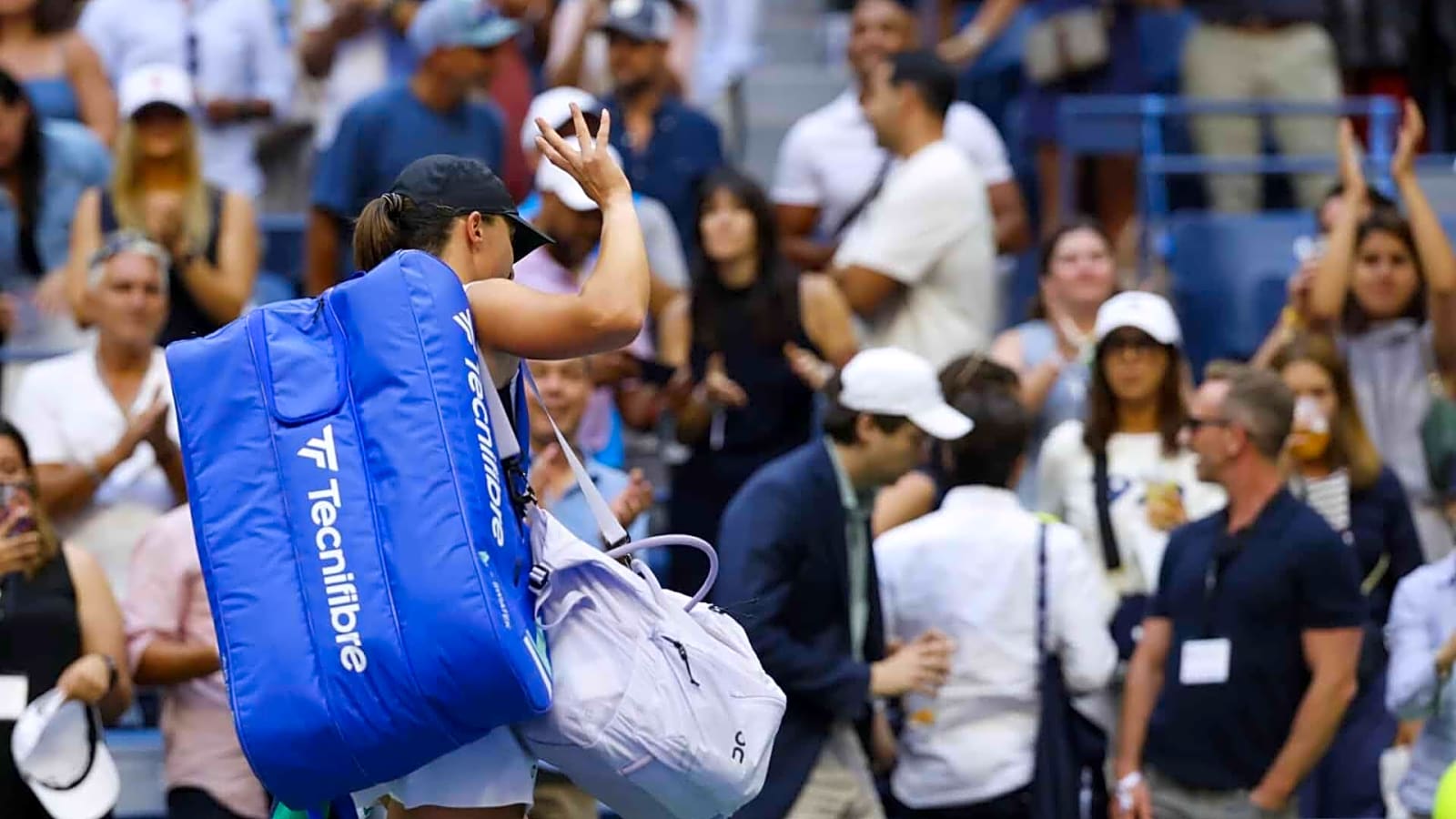
Iga Swiatek, the world No. 1 in women’s tennis, is a force of nature. Watching her on the court is like witnessing a master artist at work—precise, powerful, and almost always dominant. But even the best have off days. After a stunning loss to Emma Navarro at the China Open, Swiatek found herself on the receiving end of something far uglier than a simple defeat: a tidal wave of online hate from so-called “fans.”
Apparently, in the minds of these keyboard warriors, losing a single tennis match is grounds for a complete character assassination. It’s a bizarre, yet depressingly predictable, part of modern sports culture. You’d think a four-time Grand Slam champion would have earned a bit of leeway, but nope. Welcome to the internet, where everyone’s an expert and empathy is in short supply.
The Vile Aftermath of a Swiatek Stumble
Let’s set the scene. Swiatek, fresh off a title win in Korea, had an uncharacteristically bad day at the office. She racked up 70 unforced errors against Navarro and admitted herself, “I just played bad.” It happens. Athletes are human, not robots programmed for perpetual victory. But for some, this was an unforgivable sin.
The trolls descended with the fury of a thousand scorned bettors. Swiatek was bombarded with messages labeling her “pathetic” and “mediocre.” One particularly unhinged comment, which she bravely shared, read: “You have no discipline, no talent, no ability to make adjustments, no room to play a different style, no metal (mental) strength… It’s honestly shocking.”
Honestly shocking? What’s actually shocking is having the audacity to type that out and send it to one of the most decorated athletes on the planet. It’s the kind of armchair analysis that reeks of entitlement and a complete detachment from reality. This wasn’t constructive criticism; it was a vitriolic tantrum disguised as feedback.
Swiatek’s Stand Against the Toxicity
Instead of ignoring the noise, Swiatek decided to shine a light on it. She took to her Instagram story, posting screenshots of the abusive messages for the world to see. It was a bold move, and a necessary one. She wrote, “Nowadays, this is a sad part of our reality in sports. Bots, betting, but also ‘fans.’ It is worth considering, especially since World Mental Health Day is just a few days away.” The timing couldn’t have been more poignant.
Swiatek didn’t just vent; she called for action. She urged the governing bodies of tennis to provide athletes with better tools and resources to combat the endless stream of online harassment. It’s one thing to tell players to “just ignore it,” but it’s another to actively build a safer environment. She even suggested a practical solution: using AI to filter out hateful comments, referencing technology that was successfully used at Roland Garros.
“I feel like we can’t be on the internet and feel safe anymore,” she stated. And she’s right. When your phone becomes a portal for anonymous abuse, the mental toll is immense.
A Disturbing Trend in Tennis
Sadly, Swiatek’s experience is far from unique. This isn’t an isolated incident but a symptom of a larger, more toxic problem plaguing professional sports, particularly tennis. American player Jessica Pegula noted how these kinds of comments have become “normalized,” a chilling thought for anyone in the public eye.
British player Katie Boulter revealed an even darker side to the abuse, speaking about receiving horrific death threats and messages like, “Hope you get cancer.” It’s a disgusting reality that highlights how a small, vocal minority can poison the well for everyone. The line between passionate fandom and dangerous obsession is being crossed far too often.
It’s easy to blame betting culture, and it certainly plays a role. When people have money on the line, their reactions to a loss can become disproportionately aggressive. But it’s more than that. It’s a fundamental lack of respect for the athletes as human beings. They are seen as commodities, avatars for victory or failure, rather than people with feelings, families, and immense pressure on their shoulders.
Iga Swiatek didn’t need to dignify these trolls with a response, but by doing so, she started a much-needed conversation. She reminded everyone that behind the athlete is a person, and words—even those typed from a basement miles away—have weight. Maybe, just maybe, if more stars follow her lead, the sports world will finally start treating this issue with the seriousness it deserves.
More must-reads:
- Is Liverpool’s current slump a sign of deeper problems?
- McLaren’s intra-team championship fight heats up after dramatic Singapore GP
- The 'MLB playoff debut strikeouts leaders' quiz
Customize Your Newsletter
 +
+
Get the latest news and rumors, customized to your favorite sports and teams. Emailed daily. Always free!








